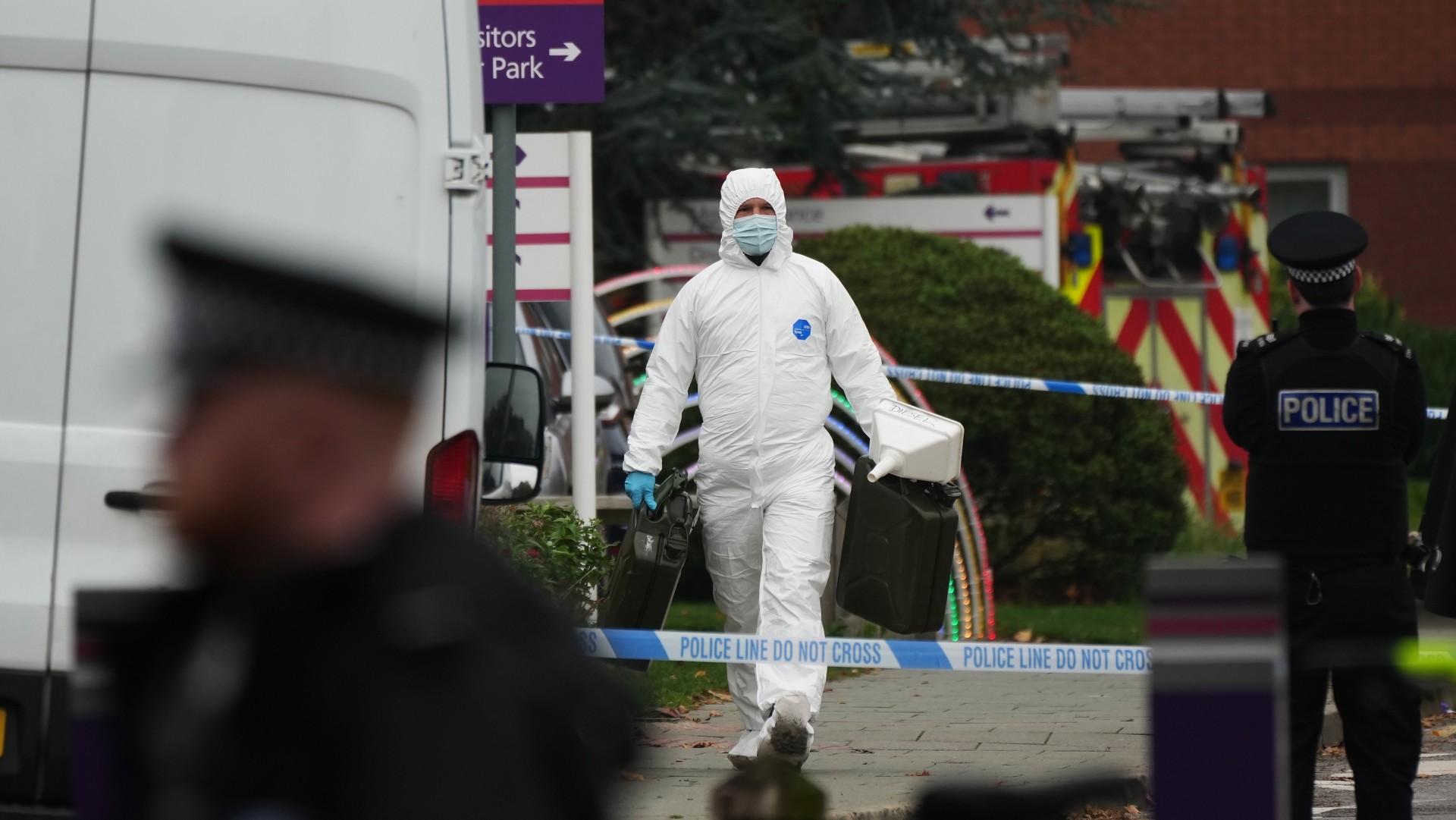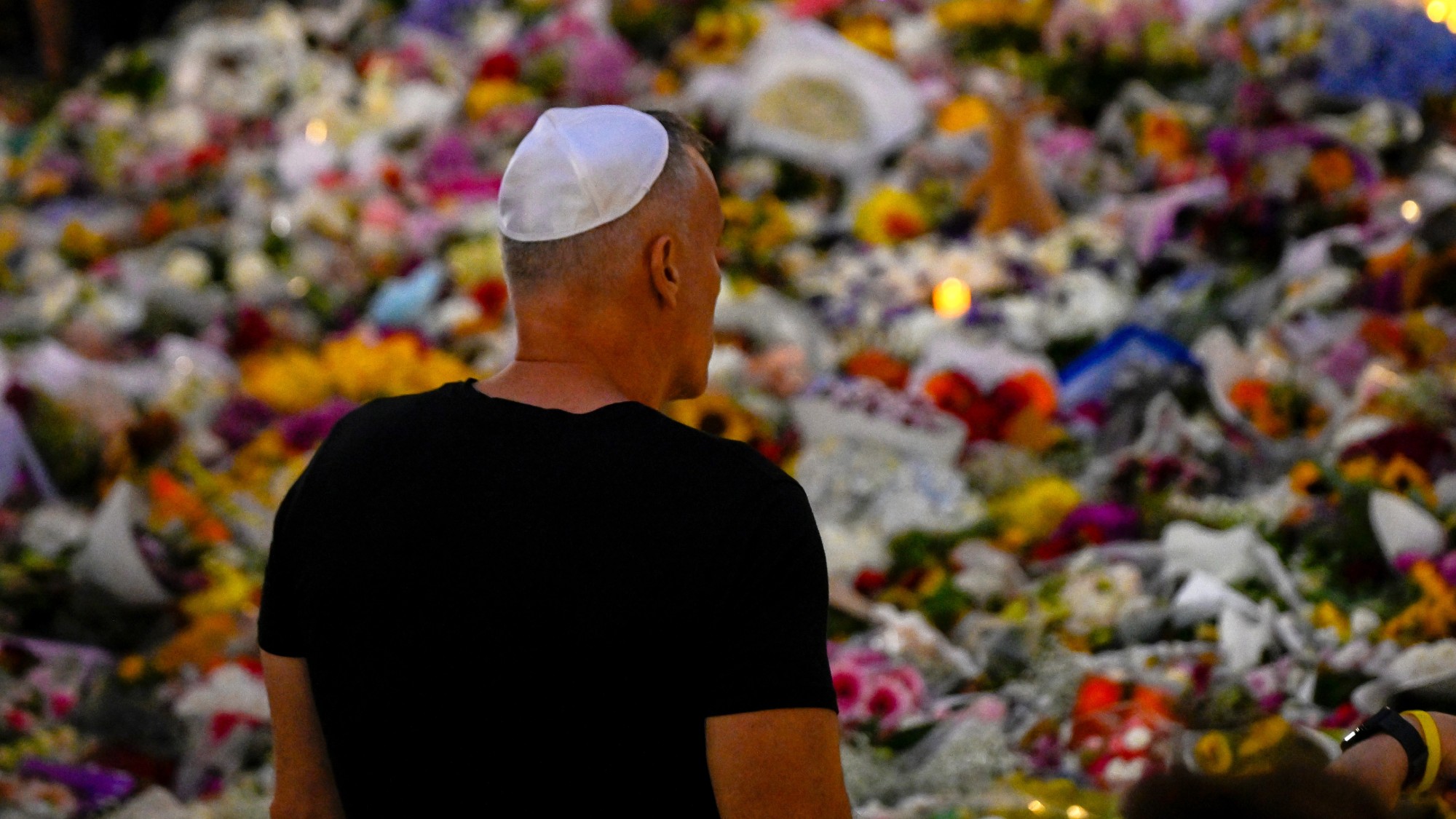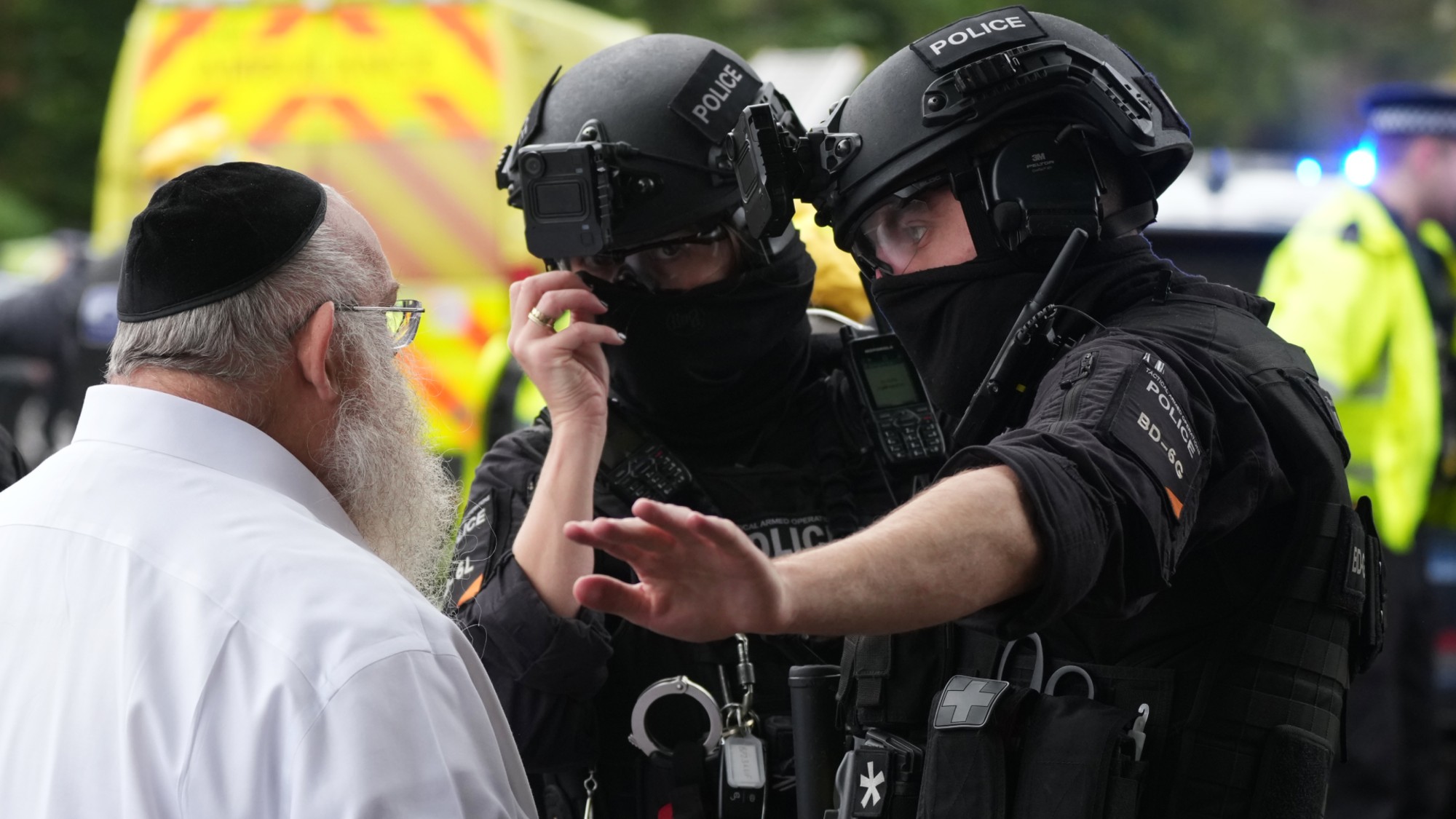Liverpool hospital taxi explosion: was the location and timing significant?
Driver hailed a hero as four arrested under Terrorism Act across city

A free daily email with the biggest news stories of the day – and the best features from TheWeek.com
You are now subscribed
Your newsletter sign-up was successful
“Inferno” was the caption on the front page of the Daily Mirror today as it showed a taxi on fire outside Liverpool Women’s Hospital on Remembrance Sunday.
Counter-terrorism police and MI5 are investigating the blast that killed a man just “a minute before the UK honoured its war dead”, said the paper.
Four arrests have been made under the Terrorism Act and properties across the city were raided yesterday. This morning, police confirmed that they were dealing with a terrorist incident.
The Week
Escape your echo chamber. Get the facts behind the news, plus analysis from multiple perspectives.

Sign up for The Week's Free Newsletters
From our morning news briefing to a weekly Good News Newsletter, get the best of The Week delivered directly to your inbox.
From our morning news briefing to a weekly Good News Newsletter, get the best of The Week delivered directly to your inbox.
Patients and staff at the hospital, who were preparing to observe the national two-minute silence, were “rocked at 10.59am by the sound of a large explosion”, said The Telegraph.
The driver, named locally as David Perry, managed to escape before the vehicle burst into flames at a drop-off zone near the entrance and was treated for serious but non-life threatening injuries. He was able to return home from hospital this morning. The passenger, who is yet to be publicly named, was declared dead at the scene.
Perry has been hailed a hero after unconfirmed reports suggested he had locked the man in the car to prevent him from harming anyone else.
“The taxi driver, in his heroic efforts, has managed to divert what could have been an absolutely awful disaster at the hospital,” Joanne Anderson, the mayor of Liverpool, told BBC Radio 4’s Today programme this morning.
A free daily email with the biggest news stories of the day – and the best features from TheWeek.com
The hospital “is just a mile from Liverpool Cathedral, where military personnel, veterans and civic dignitaries were gathering for a Remembrance Day service”, noted the Telegraph. It was one of the country’s largest services with more than 2,000 people attending.
The Times said security sources confirmed that detectives were examining whether there was any significance to its closeness to the cathedral, and “said the possibility of an Islamist terror attack was among the scenarios being investigated”.
The security insiders also told the paper that detectives were “examining whether there was any significance to the timing of the incident”, so close as it was to the anniversary marking the end of World War One.
In a press conference this morning, the head of Counter Terrorism Policing North West, Russ Jackson, said investigators were aware that the Remembrance events were taking place “just a short distance away” and that the “ignition occurred shortly before 11am”.
He said they “cannot at this time draw any connection with this” but that it was “a line of inquiry we are pursuing”. He also said that the passenger had asked the driver to be taken to the hospital.
After Army ordnance disposal officers examined the scene, the blast is “being treated as the ignition of an explosive device”, which was brought into the cab by the passenger, said Jackson. However, he said the man’s motivation was “yet to be understood”.
-
 Magazine solutions - February 27, 2026
Magazine solutions - February 27, 2026Puzzle and Quizzes Magazine solutions - February 27, 2026
-
 Magazine printables - February 27, 2026
Magazine printables - February 27, 2026Puzzle and Quizzes Magazine printables - February 27, 2026
-
 ‘The forces he united still shape the Democratic Party’
‘The forces he united still shape the Democratic Party’Instant Opinion Opinion, comment and editorials of the day
-
 Why have homicide rates reportedly plummeted in the last year?
Why have homicide rates reportedly plummeted in the last year?Today’s Big Question There could be more to the story than politics
-
 How the ‘British FBI’ will work
How the ‘British FBI’ will workThe Explainer New National Police Service to focus on fighting terrorism, fraud and organised crime, freeing up local forces to tackle everyday offences
-
 How the Bondi massacre unfolded
How the Bondi massacre unfoldedIn Depth Deadly terrorist attack during Hanukkah celebration in Sydney prompts review of Australia’s gun control laws and reckoning over global rise in antisemitism
-
 Who is fuelling the flames of antisemitism in Australia?
Who is fuelling the flames of antisemitism in Australia?Today’s Big Question Deadly Bondi Beach attack the result of ‘permissive environment’ where warning signs were ‘too often left unchecked’
-
 Ten years after Bataclan: how has France changed?
Ten years after Bataclan: how has France changed?Today's Big Question ‘Act of war’ by Islamist terrorists was a ‘shockingly direct challenge’ to Western morality
-
 Arsonist who attacked Shapiro gets 25-50 years
Arsonist who attacked Shapiro gets 25-50 yearsSpeed Read Cody Balmer broke into the Pennsylvania governor’s mansion and tried to burn it down
-
 Manchester synagogue attack: what do we know?
Manchester synagogue attack: what do we know?Today’s Big Question Two dead after car and stabbing attack on holiest day in Jewish year
-
 The Miami Showband massacre, 50 years on
The Miami Showband massacre, 50 years onThe Explainer Unanswered questions remain over Troubles terror attack that killed three members of one of Ireland's most popular music acts